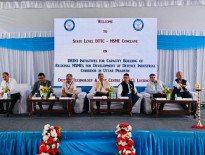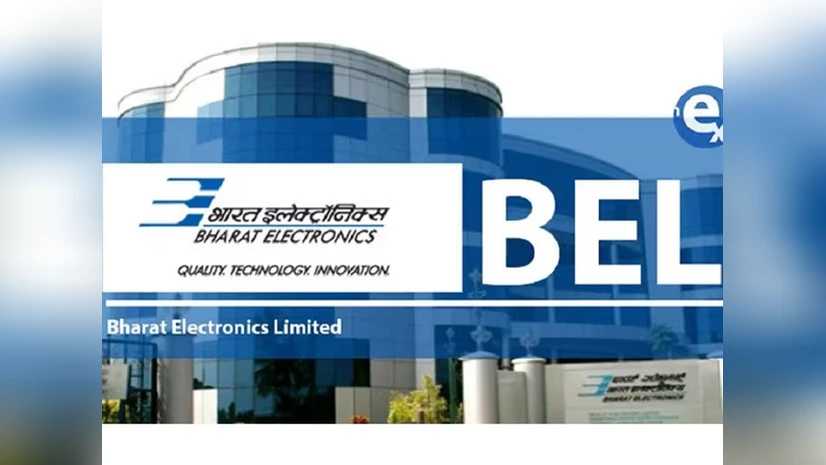Share

NCLAT in the matter of SNJ Synthetics Limited vs. PepsiCo India Holdings Private Limited, rejected the Section 9 application filed by an MSME operational creditor on the ground that the amount of default (excluding interest accrued as per Sections 15 and 16 of MSMED Act) was less than the limit stipulated under section 4 that triggers IBC proceedings.
Brief Background:
The operational creditor in the present case was an MSME supplier which filed a Section 9 application for an operational debt of Rs.1.96 Crores which included Rs.1.05 Crores as interest for the delayed payment in terms of the provisions of Sections 15 and 16 of the MSMED Act. During the pendency of the matter, the parties reconciled accounts and revised the principal to around ₹77.37 lakhs. Pursuant to directions from the AA, the CD paid this amount, which the OC accepted, while continuing to press for interest at 24% pa in terms of Section 16 the MSMED Act. Section 15 of the MSMED Act makes it mandatory for the buyers to make payments to MSME suppliers on or before the agreed-upon date in writing. However, this period cannot exceed 45 days from the date of acceptance or deemed acceptance of the goods or services. If no such agreement exists, payment must be made within 45 days from the day of acceptance or deemed acceptance. Section 16 prescribes that, upon failure to pay within the stipulated period, the buyer is liable to pay compound interest at three times the RBI notified bank rate. Crucially, this obligation applies notwithstanding any agreement to the contrary. Section 17 further confirms that both the principal and such interest are payable by the buyer. The AA dismissed the application, holding that CIRP could not be initiated solely on the basis of unpaid interest, once the principal amount had been settled.
NCLT observed:
“In the present case, the principal amount stands paid, therefore the CIRP cannot be initiated solely on the basis of the claim of interest component…” On appeal, the NCLAT upheld this view and further stated:
“… We also notice that the Appellant has relied on the provisions of other laws like MSME Act or Interest Act to justify their claim of interest payment. Without making any observation on the merits of their contention, we would only like to add that neither the Adjudicating Authority nor this Appellate Tribunal is the appropriate forum for making any such determination on the liability of the Respondent- Corporate Debtor to pay interest under the MSME Act or Interest Act.” While there may be facts specific to the case, for instance, comments of the NCLAT on the interest claim being unsubstantiated despite downward revision of principal and whether the process was being abused as a debt recovery process, the only point of discussion in this article is whether only the interest component in case of an operational debt, particularly the interest arising under statute, can form sole basis for initiation of CIRP. Interest as operational debt- A grey area? While interest is explicitly included in the definition of financial debt under Section 5(8) of IBC, the definition of operational debt under Section 5(21) makes no such explicit reference. “Operational debt” u/s 5(21) is defined as:
“Operational debt” means a claim in respect of the provision of goods or services including employment or a debt in respect of the payment of dues arising under any law for the time being in force and payable to the Central Government, any State Government or any local authority. This distinction in statutory language has raised questions on inclusion of interest on delayed payments as part of operational debt for the purpose of initiating insolvency proceedings, even though there are clear stipulations under the MSMED Act [1]. However, in so far as the interplay between IBC and MSMED Act is concerned, with respect to the statutory interest, judicial decisions indicate that for the purpose of interpretation, such interest, unless mutually agreed upon or expressly admitted, is not regarded as forming part of operational debt under Section 5(21) of the Code. In Vedic Projects Pvt Ltd vs. Sutanu Sinha Resolution Professional for Simplex Projects Ltd., NCLAT, New Delhi confirmed the view of the AA and held that, “10. With regard to claim under the MSME, the Adjudicating Authority has observed that NCLT is not appropriate Forum to consider the issue pertaining to the interest, claimed by the Appellant under Section 16 of the MSMED Act.”
Further, NCLT, Mumbai in KBC Infrastructures Pvt. Ltd vs. Shapoorji Pallonji and Company Pvt. Ltd., held that in the absence of mutual agreement or any promise to pay interest for delayed payment, the claim of OC for treating the interest payable under MSMED Act as operational debt cannot be sustained.
The Tribunal held:
However, it is now settled in the context of the Code that if interest is not agreed upon between the parties, it cannot form a part of ‘operational debt’ within the meaning of Section 5(21) of the Code and that no such interest can be claimed in an application under Section 9 of the Code. Interest under Section 16 of MSME Act can be claimed before the MSME Facilitation Council (MSEFC) in terms of Section 18 of the MSME Act. Thus, the correct forum for such claims shall be the MSEFC and not this Tribunal…” A similar view was also taken by NCLAT in Coal India Ltd vs. Gulf Coil Lubricants India Ltd. & Anr. NCLT, Mumbai in the matter of Skoda Auto Volkswagen India Pvt. Ltd. vs. Susee Automotive Pvt. Ltd. and NCLT, New Delhi in Lakshya Infrapromoters Pvt. Ltd. vs. The Indure Pvt. Ltd. However, in other cases wherein the OC was not an MSME, the treatment of interest has seen divergent views.
In Prashant Agarwal vs. Vikas Parasrampuria, the NCLAT held that when interest terms are clearly mentioned in the invoices and remain undisputed, such interest forms part of the debt and must be considered, while computing the default threshold under Section 4 of the IBC. “It is, therefore, clear from these facts that the total amount for maintainability of claim will include both principal debt amount as well as interest on delayed payment which was clearly stipulated in the invoice itself…” Relying on the Prashant Agarwal judgement, NCLAT in Anuj Sharma v. Rustagi Projects Pvt. Ltd., held that:
“The above judgment of “Prashant Agarwal” clearly supports the submission of learned counsel for the Respondent that for calculating the amount for maintainability of the claim, for threshold purpose, both Principal Amount and Interest have to be calculated when the interest is stipulated between the parties.” On the other hand, in Wanbury Ltd. vs. Panacea Biotech Ltd. and SS Polymers vs. Kanodia Technoplast Ltd., NCLAT denied inclusion of interest in operational debt, where there was no express agreement or where interest was unilaterally imposed through invoices not accepted or signed by the corporate debtor. In Rohit Motawat vs. Madhu Sharma, Permali Walla Ce Private Limited vs. Narbada Forest Industries Private Ltd, also, the NCLAT reiterated that operational creditors cannot rely on unilaterally raised invoices to claim interest and that once the principal is paid, Section 9 proceedings solely for interest are not maintainable. Further, in Swastik Enterprises vs. Gammon India Limited, clarifying on whether interest should form part of the debt amount, held that:
4.It is submitted that the ‘debt’ includes the interest, but such submission cannot be accepted in deciding all claims. If in terms of any agreement interest is payable to the Operational or Financial Creditor then debt will include interest, otherwise, the principal amount is to be treated as the debt which is the liability in respect of the claim which can be made from the Corporate Debtor.
5.In the present appeals, as we find that the principal amount has already been paid and as per agreement, no interest was payable, the applications under Section 9 on the basis of claims for entitlement of interest, were not maintainable. If for delayed payment Appellant(s) claim any interest, it will be open to them to move before a Court of competent jurisdiction, but initiation of Corporate Insolvency Resolution Process is not the answer.”
Analysis:
It appears from the judicial precedents discussed above that, in case of operational debt, the judiciary is inclined to accept “interest” as a debt eligible to initiate CIRP, only when there is an explicit contract between the parties. However, the authors also submit that in case of MSME, the intent of the provisions in Sections 15 and 16 is to ensure that the payments to MSMEs are not delayed. Such interest operates in the nature of a penalty [2], and thus there can be no question of any contract between the parties. Hence, going by the judicial precedents above, such statutory imposition of interest can never enable an operational creditor to initiate CIRP against the corporate debtor. Further, the definitions of “debt” and “default” under IBC are quite broad. While “debt” is defined as a liability or obligation in respect of a claim which is due from any person and includes a financial debt and operational debt; “default” is non-payment of debt, when whole or any part or instalment of the amount of debt has become due and payable and is not paid by the debtor or the corporate debtor. Interest arising under Section 16 of the MSMED Act would squarely fall under the definition of “debt” – hence, any non-payment of such interest as per statutory timelines should be considered as a default. Also, in case of an application being filed by operational creditor, as referred in Section 9(5), the AA shall admit the application when “no notice of dispute has been received by the operational creditor or there is no record of dispute in the information utility”, and shall reject the application when “notice of dispute has been received by the operational creditor or there is a record of dispute in the information utility”. Therefore, unless there is a dispute, the AA does not have the discretion to reject the application – particularly on the grounds that such interest was not “contractually” agreed. Of course, there can also be possibilities, where the levy of interest by MSME is disputed by the corporate debtor, that is, there is a pre-existing dispute before the notice is given by the operational creditor under Section 8 of IBC – in such cases, the AA should not admit the application, given that the very existence of such debt is in dispute.
Closing thoughts:
The observation of NCLAT in the present case, read with the previous judicial precedents as well, has raised a significant concern i.e., whether statutory interest under laws such as the MSMED Act or the Interest Act is effectively excluded from consideration in insolvency proceedings? This interpretation could have far-reaching implications. While such interest may be a rightful claim under special statutes, the exclusion of these amounts from the computation of default under Section 9 in view of judicial interpretations, introduces a disconnect between substantive rights under one law and procedural access under another.
Source : https://vinodkothari.com/2025/05/fizzled-out-at-nclat-no-fizz-for-interest-on-unpaid-msme-dues/#:~:text=The%20Tribunal%20held%3A,Section%209%20of%20the%20Code.






